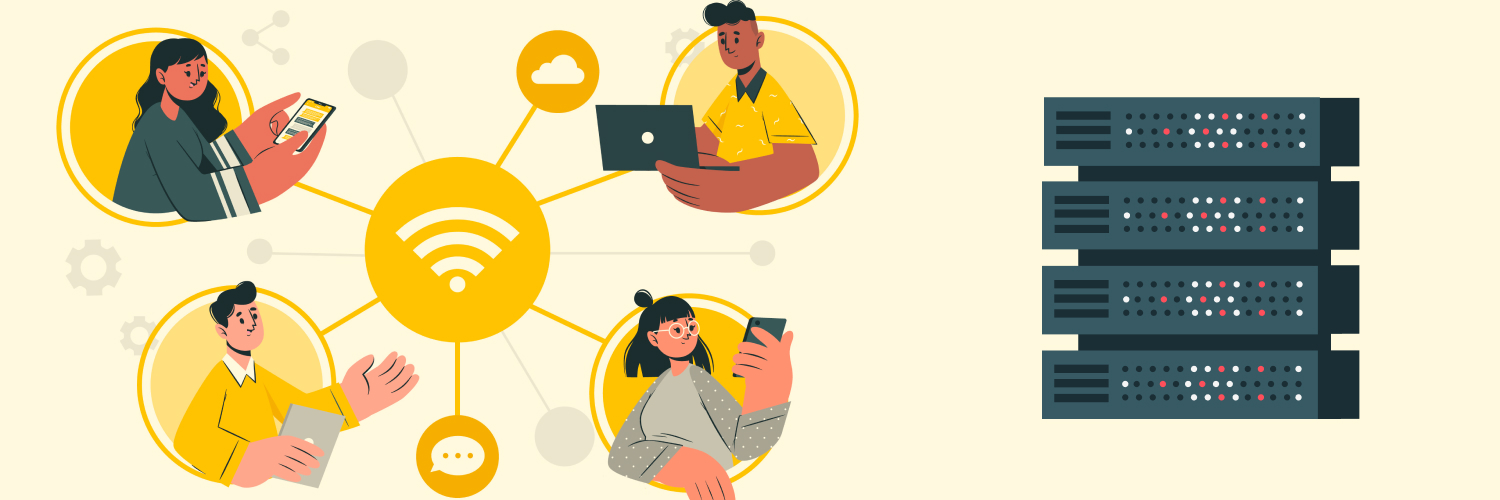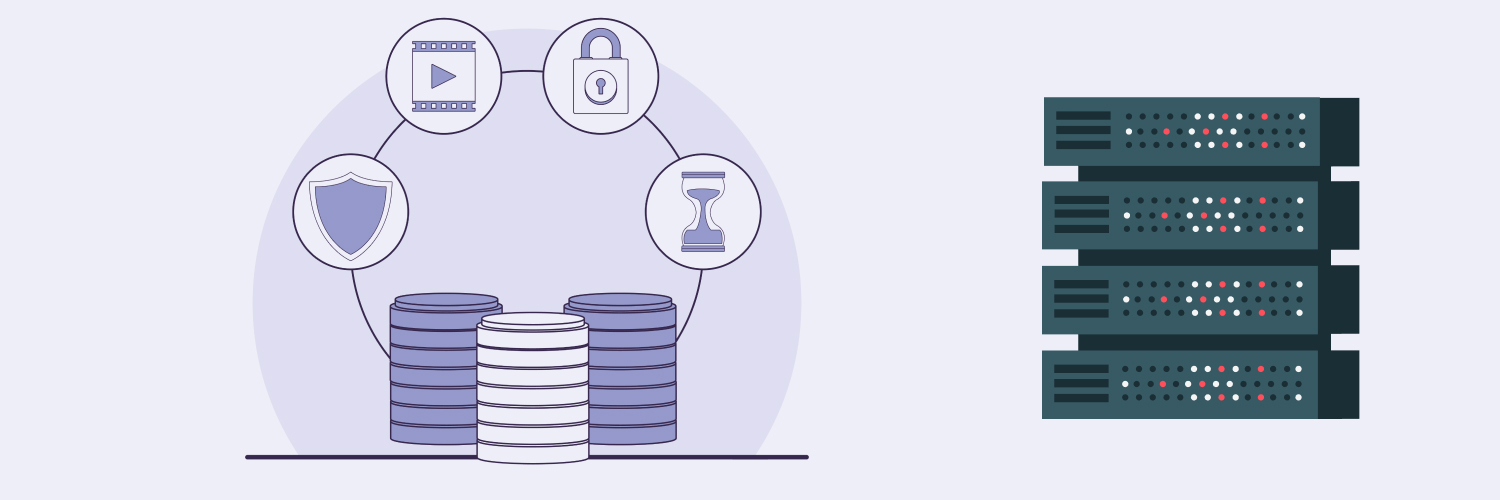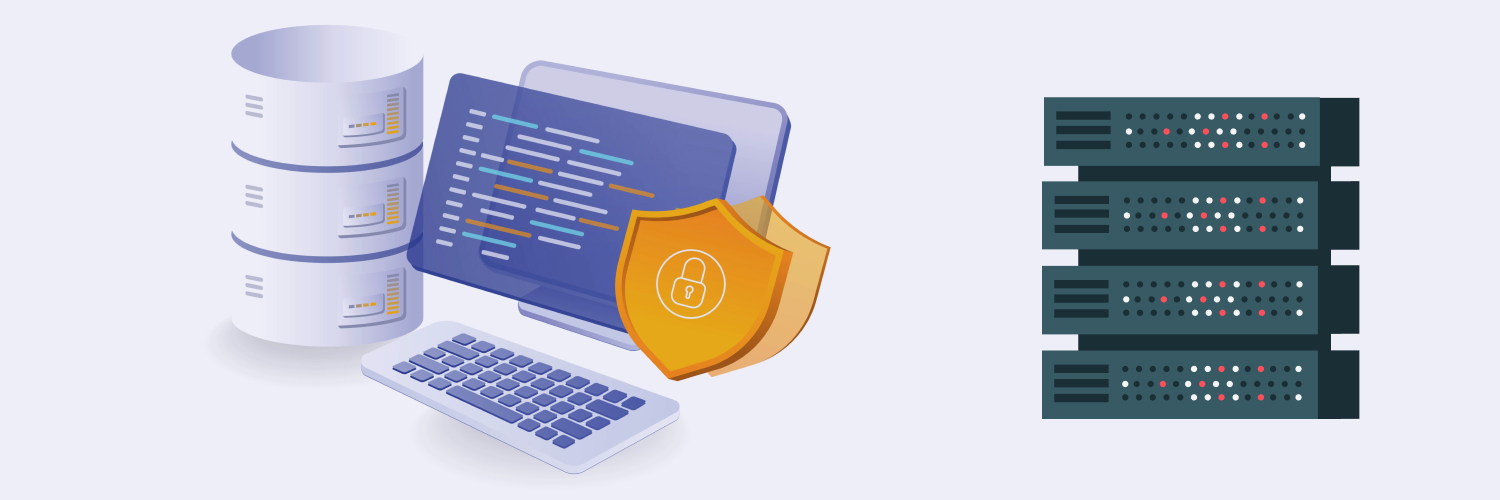Why You Want To Test Proxies Before You Start Using Them
Proxies have become an integral component of today’s business landscape, especially considering their usability in price monitoring, competitor analysis, web scraping, and a host of other data-intensive tasks. While the concept of a proxy server is not new, their increased usage can be attributed to the fact that they provide a higher level of anonymity than before while also being more affordable and easier to use.
It’s essential to test proxies, especially if you plan on using them for web scraping or other data-intensive tasks. This is because proxies can significantly impact the speed and reliability of your web scraping efforts.
Here’s an overview of how to test proxies, why you need to check proxies, and whether testing proxies is a necessity. Keep reading to learn how to check proxies for speed, reliability, location, and other parameters.
Why Should You Check Proxies?

Testing proxies is essential, especially in situations when anonymous surfing and data scraping are required. For example, while researching a website or a service, a user may need to use a proxy server to remain relatively anonymous while gathering information.
However, these proxies can also be used by attackers to remain hidden while carrying out malicious activities on the internet.
Suppose you want to use proxies for competitor analysis in your company. You would definitely not want your company IP to get banned from the website. In this case, you need to check proxies before using them to ensure everything went smoothly.
There are various reasons for checking proxies. Some of the most common reasons are listed below.
Correct functioning
Firstly, you must ensure that the proxies you are using are working correctly. This is important because if the proxies are not functioning, you will neither be able to access the internet nor remain anonymous.
For instance, if you want to cop sneakers using proxies and bots, you only have one chance to get your hands on a pair before it runs out of stock. If the proxies aren’t functioning correctly, you’ll miss the opportunity to buy a limited edition or highly sought-after pair of sneakers. Likewise, when you’re scraping the web for competitor information or price monitoring, you want to ensure the correct functioning of your proxies.
Otherwise, you might get blacklisted or banned from the website, negatively impacting your business.
Compatibility
Another reason for checking proxies is compatibility. Not all proxies work with all bots and software, so you need to check whether the proxies you’re using are compatible with your software.
For example, if you want to use the Nike SNKRS bot to buy sneakers, you should check that your proxies are compatible with the bot. If you don’t check compatibility, you might waste your time and money on proxies that don’t work with your bot.
Location
The location of the proxy server is another important factor to consider. For example, if you’re trying to access a website that’s only available in the U.S., you need to use U.S. proxies.
Similarly, if you’re trying to access a website that’s only available in Europe, you need to use European proxies. Again, if you don’t use the correct location of proxies, you won’t be able to access the website.
Speed
Before you start using a proxy for the actual task, a test run is required to see if the proxy is working at the speed you need. For instance, if you’re trying to cop sneakers using a bot, you need proxies that are fast enough to add the sneakers to your cart before they sell out.
Similarly, if you’re trying to scrape data from a website, you need fast enough proxies to gather the required data before the website’s server detects and blocks your IP address.
To check the speed of proxies, you can use various tools such as:
- ProxyPing
- MultiProxy
- ProxySpeed
How to Test Proxies?

There are many ways to check proxies. While some involve checking if the proxy is doing what it’s supposed to do, the others require a proxies tester. It’s important to know both methods so you can decide which is the best in each use case.
How to check proxies without a proxy checker?
As mentioned, you can check proxies with a proxies tester. You can do this with one or more of the following methods.
Use an IP checker
The working mechanism of a proxy involves forwarding your requests to a server. Many systems use IP addresses to uniquely identify themselves on a network. This makes it possible to track where traffic is coming from and prevent certain attacks. A proxy hides your actual IP address, so you won’t be sending a request to the target website’s server through your original IP address.
To check if a proxy is working, you need to see if your IP address gets changed. IP checkers are software used to check the IP address of a system. You can use an IP checker tool like IP Logger, which will tell you whether the proxy has worked or not.
You can use one of the many free IP checkers online. What’s My IP is one popular option. For this method, you must know your IP address before using a proxy. The What’s My IP site will instantly show you your current IP address.
To use it:
- Use an IP checker to identify your IP address before using a proxy.
- Connect to a proxy server.
- Go to the IP checker’s website again and check if the IP address has changed.
Use an IP database
An IP database is a collection of IP addresses and their related information. This information can be used to determine the location, organization, and other details about the owner of an IP address.
Some proxies use blacklisted IP addresses. If you’re using one of these proxies, your actual IP address may be blocked from accessing certain websites.
You can use an IP database to check if a proxy is blacklisted. For example, you can use the IP2Location database to check up to 50 IP addresses in a day for free. If you register and buy the paid plan, you can check hundreds of IP addresses in a day.
The database will show you a few things, including:
- IP address and location: First, you’ll see the IP address you’ve inputted. The location will be shown as well.
- Domain name: If the IP address is associated with a domain name, it’ll be shown here.
- Usage type: Depending on the type of proxy you’re using, the IP address will come from different locations. For example, if you’re using data center proxies, you’ll see that they come from data centers rather than residential addresses.
How to check proxies with a proxy tester?
There are many tools you can use to check proxies. For example, you can use a web-based tool or a desktop application, often known as a proxy tester. Some of the most popular proxy testers are:
InfobyIP
InfobyIP offers several features, one of them being the Proxy Checker. The tool supports HTTP and SOCKS5 proxies. It also tells you about the proxy server’s anonymity.
Proxy Checker also tells you about the response time and whether the proxy is working or not. If a proxy doesn’t work, you’ll see a red light next to it.
Hide My Name
Hide My Name is an excellent tool if you want to check multiple proxies simultaneously . It has a smart algorithm that can check up to 500 proxies at a time.
The results are shown in a table where you can see the proxy’s:
- Type
- Country
- Speed
- Connection time
- Anonymity level
An important thing to note is that the tool doesn’t check for the proxy’s reliability. Even if a proxy is working when you test it, the tool won’t tell you about any potential downtime the proxy might face in the future.
A notable benefit of using this tool is that it allows you to export the results. You can also filter the settings to only see the parameters you want, such as anonymity or speed.
Proxy Verified
Yahoo developed Proxy Verified as a web-based tool to check proxies. The benefit of using a web-based tool is that you don’t have to install any software. Instead, you can go to the website and start using it.
However, the tradeoff is that Proxy Verified only supports HTTP proxies. Aside from that, the tool is quite efficient in checking proxies.
Proxy Verified works differently from other proxy testers that only check one-sided traffic. It checks traffic going to and coming from the proxy. Moreover, you can check multiple proxies at once.
PortChecker Proxy Checker
PortChecker Proxy Checker is a specialized online tool that helps users check if their proxy IP addresses are working correctly. It is simple yet effective and can be used to test the connectivity of proxy servers.
PortChecker Proxy Checker works by sending a request to a given proxy server and checking the response time. If the response time is too long, the proxy server is not working correctly. There is no need to install any software on your computer. Instead, open the website and enter the proxy IP address you want to check.
RSocks proxy Checker
RSocks Proxy Checker is available as an app and lets you check the status of RSocks proxy servers. It is a simple tool that can test the connectivity of RSocks proxy servers.
To use RSocks Proxy Checker, enter the RSocks proxy server IP address that you want to check and click on the “Check” button. You can also check the proxy server:
- Location
- Speed
- Uptime
To check the status of multiple RSocks proxy servers at the same time, click on the “Check Multiple” button.
Genocide proxy checker
Genocide Proxy Checker is an advanced proxy checking tool. It can check HTTP(S), SOCKS4, and SOCKS5 proxies with or without authentication. It can also parse proxy lists from various sources like URLs, local files, or text strings and check if the proxies are alive at the moment.
The tool can check up to 100 proxies at a time, which means you can check a large number very quickly. Simply enter the proxies into the text box, select the proxy type, and click on “Check Proxies.” The results will be displayed in the table below.
Checkerproxy
Checkerproxy is another free online proxy checker that can check different types of proxies. It also supports Proxy Authentication (Basic, NTLM, and Kerberos).
It will show you information about the proxy:
- Anonymity
- Location
- Speed
- Response time
Angry IP Scanner
Angry IP Scanner is a popular desktop application that can be used for many things, including checking proxies. The tool has a user-friendly interface, and it’s straightforward to use.
Just enter the range of IP addresses you want to scan, and Angry IP Scanner will do the rest. It’ll show you all the devices connected to those IPs, including proxy servers. The results are shown in a table where you can see the proxy’s IP address, port number, and country.
One of the benefits of using Angry IP Scanner is that it’s swift. You can scan all your proxies in a few minutes. Plus, you can export the results in different formats. Since the Angry IP Scanner is free, you just have to download it from the web, and it runs on your Linux, Mac, or Windows computers.
Nmap
Nmap works as a network mapping tool to find devices connected to a network. However, it can also be used to check proxies.
You just have to enter the IP packets or addresses, and Nmap will do the rest. It will show you multiple characteristics of the proxies, such as their anonymity and speed.
Nmap works with all desktop operating systems, including Mac, Linux, and Windows.
Troubleshooting Proxy Errors

When you test your proxies, you might occasionally encounter error messages. If you frequently encounter proxy errors, here are some steps you can take to mitigate them.
Check your port number and IP address
Start by checking if you are using the correct port number and IP address. If you are not sure what these are, you can contact your proxy service provider.
Make sure your software is up to date
If you are using proxy software, make sure it is up to date. Outdated software might not work properly with your proxies.
Try a different browser
If you are still encountering errors, try using a different web browser. Different browsers can have different levels of compatibility with proxies.
Restart your computer
If you have tried all of the above and are still having trouble, restarting your computer might help. Sometimes, proxy errors can be caused by temporary technical issues that you can resolve by rebooting your computer.
How to Tackle Proxy Error Codes?

You will see proxy issues as HTTP Status Codes. These are three-digit codes that give you information about the status of your request. Here are some common proxy error codes and what they mean:
- 1xx: These are informational error codes. They indicate that your request has been received and is being processed.
- 2xx: These are success codes. They indicate that your request was successful.
- 3xx: These redirect codes indicate that the requested resource has moved to a different location.
- 4xx: These show if there was an error on the user’s end. For example, if the user has entered an incorrect URL, you will receive a “404 Not Found” error code.
- 5xx: These server-side error codes indicate an error with your request. For example, if the proxy server is down, you will receive a 500 Internal Server Error code.
If you have an in-house IT team, they can help you resolve proxy errors. Meanwhile, you can contact their customer support for help if you are using a proxy service.
Rayobyte offers a wide range of high-quality proxies that keep you from running into quality, anonymity, or speed issues. However, if you still encounter a problem, Rayobyte’s support and tech teams are available 24/7 to help you out.
Proxy errors are usually caused by incorrect settings or outdated software. If you are still having trouble after trying the above steps, contact your proxy service provider for help.
Types of Proxies

Different types of proxies perform a comprehensive range of functions. While some proxies are better for web scraping or sneaker copping, others prove to be more adept for general use or accessing specific content types. Using top proxies can help prevent you from running into errors in the first place.
Here are some types of proxies.
Data center proxies
Data center proxies are sourced from data centers and are very fast. While they don’t offer the same level of anonymity as residential proxies, they can still be used to unblock geo-restricted content and bypass firewalls.
Rayobyte data center proxies allow you to connect to thousands of IPs from multiple locations worldwide. You can also use these proxies for different purposes, such as web scraping.
If you ever run into a problem, the Rayobyte support team will be by your side to help resolve the issue.
Residential proxies
Residential proxies come from actual ISP providers and are more likely to be undetectable. These proxies are great for various purposes, such as:
- Web scraping
- Social media automation
- Sneaker copping
Some sneaker bots are designed to work only with residential proxies, so if you want to cop the latest release from your favorite brand, you’ll need a set of residential IPs.
It’s important to note that most residential proxies are static, which means they don’t change. That can be both an advantage and a disadvantage. The main advantage is that you can use the same IP for an extended period without worrying that it will get blocked. The disadvantage is that if the IP gets blacklisted, you won’t be able to use it anymore.
Rayobyte residential proxies are among the best ethically-sourced proxies in the market, giving you access to a large pool of IP addresses.
ISP proxies
You can always opt for ISP proxies if you need a hybrid of the two proxies mentioned above. These are semi-dedicated proxies that offer a good balance of speed and anonymity.
While they’re not as fast as data center proxies, they’re still faster than residential IPs. Rotating residential proxies are still the least likely to get blocked, but ISP proxies have a leg up on data center IPs regarding anonymity.
Rayobyte also provides ISP proxies for businesses that want to experience the benefits of both residential and data center proxies. With 1Gbps speed, you can scrape the web or fulfill your other needs without lag.
When is Testing Proxies Important?

You need to check proxies whenever you’re setting up a new network or if you think your current IP address may have been blocked.
There are two main reasons to use proxies when testing:
- Ensure that your tests are performed from different IP addresses. This is important to avoid being detected and banned by websites.
- Test how well a proxy performs with a specific website or application. Some proxies work well with certain sites, while others don’t.
Here are some use cases that require you to test proxies beforehand.
Market research
Companies need to gauge the market response to their products and services. The same goes for marketing agencies that need to perform web scraping and price checking tasks.
Before that, you need to collect market data, such as:
- Average price of a product
- Number of reviews for a given product
- Sentiment around a particular topic
All this data is publicly available online, but it’s often behind paywalls or requires filling out CAPTCHAs. This is where proxies come in, as they can help you bypass these barriers. However, if you want the proxies to give you accurate and usable data, you need to ensure they’re working properly. A proxy tester can help you do that.
Website testing
Websites are often hosted in different locations around the world. If you want to test how well a website loads from different regions, you need to use proxies.
Proxies for testing a site in different countries
Suppose you want to test how well your website loads from different parts of the world. You could use a proxy server in each location and send traffic to your website through the proxy. This would reveal how well your website responds from different places.
There are many benefits to using proxies for website testing. Proxies allow you to test from different locations without being there physically. They also let you change your IP address, which can be helpful if you want to test how a website responds to different types of traffic.
Check proxies before you use them for web tests
It’s wise to check the proxies beforehand to ensure they are functional in the region where you want to test them. For instance, some proxies only give you access to websites in certain countries. If you want to check the performance of your website in a country not supported by the proxy, you won’t be able to do so.
You also want to ensure that your proxies are fast enough to give accurate results. If the proxy is too slow, it will skew your results, and you won’t get an accurate picture of how well your website loads from different places.
Sneaker copping
With the sneaker resale market booming, there are more opportunities than ever to make money by flipping sneakers. But it’s not as easy as it sounds. To be successful, you need to know your stuff when it comes to sneaker brands, models, and resell value.
Most importantly, you should know how to work with proxies and bots.
- Sneaker bots are software that automates the process of buying and selling sneakers. They can be an invaluable tool for anyone looking to make money in the sneaker resale game.
- Proxies keep you anonymous when you’re buying sneakers online. When retailers announce the release of a sneaker, there’s lots of hype around it. This naturally causes the sneaker’s value to increase — sometimes exponentially.
If you’re looking to buy a highly sought-after sneaker, you’ll need to use a bot and proxy to give yourself the best chance of success. In most cases, the hyped sneakers sell in the first few minutes or hours of the release.
Suppose your proxies are not working properly. If you do not test them beforehand and only connect to the server when the sneaker is released, you might lose the chance to get the sneakers you wanted. It’s vital to test your proxies regularly to ensure they are working as intended.
Testing proxies for sneaker copping
There are many different ways to test your proxies. One popular method is called the “ping test.” This involves sending a small amount of data to the proxy server and measuring how long it takes for the server to respond. The ping test is an excellent way to get an idea of the server’s speed and stability.
Another way to test your proxies is by using them to access a website known to be blocked in your country.
If the proxy can successfully access the website, you know it is working properly. Of course, there are many other ways to test proxies, but these are two of the most popular methods for sneaker copping, especially if you want to buy sneakers from a different country.
Ad verification
Ad verification means checking that an ad is running on a website as it should be. It includes making sure that the ad is visible and leads to the correct destination when clicked. Ad verification can be done manually or with special software.
Manual ad verification
When done manually, someone needs to check each website where the ad is supposed to run and ensure it is actually there and functioning properly.
This can be time-consuming, especially if the ad is supposed to run on many websites. Ad verification software can automate the process by checking multiple websites at once and flagging any that don’t have the ad or have an issue with it.
Automated ad verification
You can use proxies to automate ad verification. By sending traffic to websites through proxies, you can check multiple websites at the same time.
However, if the proxies aren’t working correctly, you won’t be able to test your ads. That’s why testing proxies is essential before you use them to verify ads.
Competitor analysis
Whether you’re new in the market or want to introduce a new product, it’s essential to know about your competition. Competitor analysis is a fundamental part of your business planning process. Understanding your competitors will help you define your business strategies, marketing mix, and positioning.
Competitor analysis is more than just gathering information. It’s also about understanding what the information means and how it can be used to your advantage.
Ideally, you’d want to know everything about your competitors, but that’s not always possible or practical. Instead, the goal is to identify your competitors’ key strengths and weaknesses, so you can develop strategies to exploit their weaknesses, protect yourself from their strengths, and show customers why you’re the best in the business.
There are several ways to gather information about your competitors. You can:
- Buy market research reports.
- Subscribe to industry newsletters.
- Search the internet.
- Talk to customers and suppliers.
- Attend trade shows and industry events.
However, these methods are all time- and money-consuming. Alternatively, you can use proxies to scrape data from the internet. With web scraping, you can compile data and easily look at:
- Website traffic data
- Social media activity
- Keyword rankings
- And more
Once you have all this information, you need to start analyzing it. Look for patterns and trends. Next, identify your competitors’ key marketing strategies and how they’re positioning themselves in the market.
However, if you want to succeed at it, you need to ensure your proxies are anonymous. Otherwise, your competitors’ websites can block them.
That’s where proxy testing comes in. Using a proxies tester can determine whether your proxies are working and anonymous. If they’re not, you’ll need to find new ones.
Who Should Check Proxies?

If you’re using proxies for your business, the in-house IT staff should check the proxies regularly.
The frequency of the checks will depend on how important it is to maintain a high level of security and privacy:
- If you’re using proxies to access sensitive data or systems, you’ll want to check them more frequently.
- If you’re only using proxies for general web browsing, you can check them less often.
Proxy checking can be a bit technical, so it’s important to have someone on staff who is comfortable working with IP addresses and networking. If you don’t have someone on staff who can do this, you can hire a proxy checking service or use an automatic proxy tester.
Resellers who use proxies for sneaker reselling should test proxies themselves. The FOGLDN Proxy Tester is a great resource to use for this. It allows you to test up to 10 proxies at a time and provides detailed results for each one. This is important because you need to know if your proxies are working correctly and if they’re fast enough to get the job done.
Alternatively, you can contact the support team of your proxy service provider if there’s an issue with your proxies. The support or customer service team will connect you to a technician who can help you fix the problem.
FAQs
Here are some questions people commonly ask about testing proxies.
What kind of issues can I face when using proxies?
There are a few issues you may encounter when using proxies:
- Your proxy server may go down or become unresponsive, in which case you will be unable to access the internet.
- Proxies can be slow, especially if they are overloaded or not well-maintained.
- Some websites may block access from known proxy servers, preventing you from using them to visit the site.
- If not sourced correctly or if there’s a technical error, proxy servers may inadvertently leak your actual IP address, defeating the purpose of using one in the first place.
How do I test my proxies?
You can use a proxy tester to check if your proxies are working.
To do this, simply enter your proxy’s IP address and port number into the tester and click on the “Test Proxy” button. If the test is successful, you will see the “Successful Connection” message. If the test is unsuccessful, you will see a message citing the error. There are many proxy checkers online that you can use to test proxies for free.
What is a proxy checker used for?
A proxy checker is a tool used to test the status of a proxy server. This is useful in determining whether or not a proxy server is working correctly. A proxy checker can also be used to check a proxy server’s speed and see if it can connect to the internet.
Is a proxy checker better than manually testing proxies?
A proxy checker is quicker and more accurate than testing proxies manually. A proxy checker can also test multiple proxies at once, which is great because it would be tedious and time-consuming to do the task manually.
Why do you need to check the location and anonymity of a proxy?
When using proxies, it is essential to check both the location and the anonymity. The location of the proxy will determine how fast the connection will be. It also determines whether or not the proxy is likely to be blocked by websites. The anonymity of the proxy will determine how well your identity is protected.
For instance, if you’re using a proxy for sneaker copping or web scraping, you want it to be anonymous so that you don’t get blocked by the target website.
What are the benefits of using a proxy checker?
A proxy checker helps ensure that your proxy server is working as intended and that your internet traffic is being routed through the proxy as expected. Additionally, a proxy checker can help you identify any potential issues with your proxy server settings and help you troubleshoot any problems that you may be having.
Why do you need to check the speed of a proxy?
Testing the speed of a proxy is essential to ensure that the proxy can provide the required level of performance for your needs.
A slow proxy can result in poor user experience, increased latency, and decreased throughput.
There are a few different ways to test the speed of a proxy. One way is to use a proxy testing tool designed to test the speed of proxies. Another way is to use a tool designed to measure the latency of a connection, such as Ping. Finally, you can use a tool that measures the throughput of a connection, such as Iperf.
Final Words

Testing proxies is of utmost importance since it’s the only way to ensure they will work as intended. This guide has shown you various methods to test proxies, either using online tools or IP databases. Try both methods and see which one works best for you.
Even better, when you buy proxies from a proxy provider like Rayobyte, you get 24/7 customer support. If you have any questions about how to test proxies or anything else, the support team is more than happy to help.
A good proxy can make all the difference regarding online privacy and security. Therefore, you should only use paid proxies, such as those from Rayobyte, as free proxies don’t offer the same level of security and anonymity.
The information contained within this article, including information posted by official staff, guest-submitted material, message board postings, or other third-party material is presented solely for the purposes of education and furtherance of the knowledge of the reader. All trademarks used in this publication are hereby acknowledged as the property of their respective owners.






